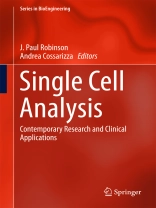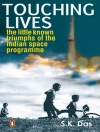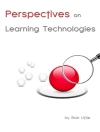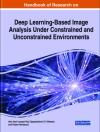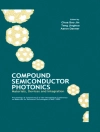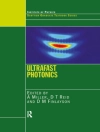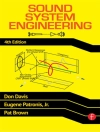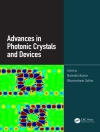This book highlights the current state of the art in single cell analysis, an area that involves many fields of science – from clinical hematology, functional analysis and drug screening, to platelet and microparticle analysis, marine biology and fundamental cancer research. This book brings together an eclectic group of current applications, all of which have a significant impact on our current state of knowledge. The authors of these chapters are all pioneering researchers in the field of single cell analysis. The book will not only appeal to those readers more focused on clinical applications, but also those interested in highly technical aspects of the technologies. All of the technologies identified utilize unique applications of photon detection systems.
Inhoudsopgave
Microenvironment Cytometry.- High Throughput and High Content Flow Cytometry.- E all’ottavo giorno, Dio creò la citometria (and on the 8th day, God created Cytometry…).- The immunology of Aging.- Stem Cells: Current knowledge.- Advances in T cell biology.- Cytomic Analysis of Oxidative Stress.- Cancer Stem Cells and Multi-Drug Resistance by Flow Cytometry.- Molecular understanding of the control of immune reactions and immunological memory in vaccination.- Dynamics of memory plasma cell niches.- Heterogeneity of tumor-infiltrating leukocytes: implications for adoptive cell transfer immunotherapy.- Can We Find Disease Mechanisms by Studying Healthy Individuals.- The Next Dimensions in Single Cell Cytometry.- RNA Flow Cytometry.- Adapting the economy to aging: evidence from biological processes.- Assessing immunological aging using flow cytometry.- Host-microbe interaction at mucosal surfaces.
Over de auteur
J. Paul Robinson is the SVM Professor of Cytomics at the College of Veterinary Medicine and a Professor of Biomedical Engineering at the Weldon School of Biomedical Engineering, Purdue University. He received his Ph.D. in Immunopathology from the University of New South Wales, Sydney, Australia, prior to completing a postdoctoral fellowship at the University of Michigan Medical School. He is currently the director of the Purdue University Cytometry Laboratories at Purdue University.
He is a past President of the International Society for Advancement of Cytometry, is the Editor-in-Chief of Current Protocols in Cytometry, Associate Editor of Histochemica et Cytobiologica, and Associate Editor of Cytometry Part A. He is an active researcher with over 165 peer-reviewed publications and 31 book chapters. He has edited 9 books and taught advanced courses in over a dozen countries. Robinson was elected to the College of Fellows, American Institute for Medical & Biological Engineering(AIMBE) in 2004, received the Pfizer Award for Innovative Research in 2004 and the Gamma Sigma Delta Award of Merit Research
Andrea Cossarizza, MD, Ph D, completed his degrees in Medicine and Surgery at the University of Padua in 1986, subsequently pursuing his Ph D in Oncology at the University of Bologna and University of Modena, and the Specialization in Clinical Pathology and Immunohematology at the University of Modena and Reggio Emilia. When he was a medical student, he visited the Basel Institute of Immunology (Switzerland) and then the New York University Medical Center, learning the basis of experimental immunology, and using the very first flow cytometers. After some periods in different Institutes (Charing Cross Sunley Research Center (Res. Ctr.), London; University of Cochin, Paris; University of California, Los Angeles (UCLA)), in 1998 he became an Associate Professor of General Pathology and Immunology at the University of Modena and Reggio Emilia, and in 2010 was appointed Full Professor. In addition to having edited numerous books, he now serves as a reviewer for several international journals, including Cytometry, AIDS, Nature Reviews, Blood, J. Immunology and others.
